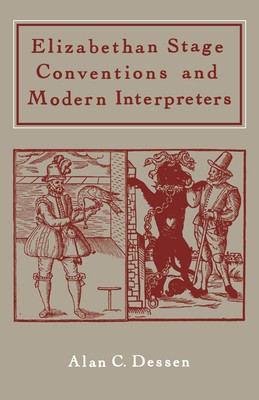
- We will send in 10–14 business days.
- Author: Alan C Dessen
- Publisher: Cambridge University Press
- ISBN-10: 0521311616
- ISBN-13: 9780521311618
- Format: 14.2 x 21.5 x 1.4 cm, softcover
- Language: English
- SAVE -10% with code: EXTRA
Elizabethan Stage Conventions and Modern Interpreters (e-book) (used book) | bookbook.eu
Reviews
Description
Alan Dessen samples about four hundred manuscripts and printed plays to record the original staging conventions of the age of Shakespeare. After studying the stage properties, movements and configurations implicit in recurrent phrases and stage directions, he concludes that Elizabethan spectators, less concerned with realism than later generations, were used to receiving a kind of theatrical shorthand transmitted by the actors from the playwright. Professor Dessen both describes this shorthand (e.g. the use of nightgowns, boots and dishevelled hair) and draws attention to the implications of his findings for modern interpreters, addressing not only critics and teachers but also editors, actors and directors.
EXTRA 10 % discount with code: EXTRA
The promotion ends in 13d.15:42:17
The discount code is valid when purchasing from 10 €. Discounts do not stack.
- Author: Alan C Dessen
- Publisher: Cambridge University Press
- ISBN-10: 0521311616
- ISBN-13: 9780521311618
- Format: 14.2 x 21.5 x 1.4 cm, softcover
- Language: English English
Alan Dessen samples about four hundred manuscripts and printed plays to record the original staging conventions of the age of Shakespeare. After studying the stage properties, movements and configurations implicit in recurrent phrases and stage directions, he concludes that Elizabethan spectators, less concerned with realism than later generations, were used to receiving a kind of theatrical shorthand transmitted by the actors from the playwright. Professor Dessen both describes this shorthand (e.g. the use of nightgowns, boots and dishevelled hair) and draws attention to the implications of his findings for modern interpreters, addressing not only critics and teachers but also editors, actors and directors.


Reviews